SUMMARY
This is AI generated summarization, which may have errors. For context, always refer to the full article.
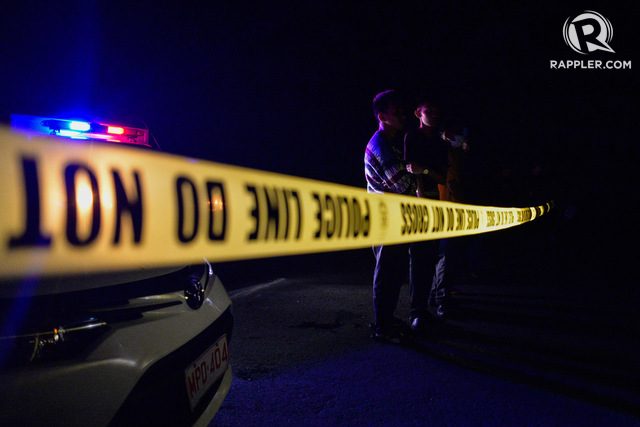
MANILA, Philippines – The Duterte administration consistently hindered the Commission on Human Rights (CHR) from accessing police documents vital to its investigations into extrajudicial killings during the violent war on drugs.
In a recently published report, the commission mandated by the 1987 Philippine Constitution to investigate state abuses said that its probes were “hampered by the predilection and uncooperativeness” of government agencies involved in the war on drugs.
It added that “subpoenas and requests for submission of documents were oftentimes refused, denied, or ignored” by the Philippine National Police (PNP) even if CHR investigators followed guidelines and directives in obtaining information.
“In some instances, the CHR Regional Offices have directly written to the Chief PNP or the Human Rights Affairs Office at the National Headquarters of the PNP, but to no avail,” CHR said.
At least 297 drug-related killings – 216 of which were committed in police operations – out of the 798 incidents analyzed by the CHR for its report lacked any police documents due to alleged outright denials, lack of response from police, and pending clearance from higher offices.
No reason was cited in the lack of documentation in at least 143 incidents.
“The inaccessibility of police records suggests lack of openness to scrutiny and public accountability, which is necessary to ensure effective and transparent investigations,” CHR said in the report.
Direct from the President
Denied requests and overall uncooperative stance of state agents could be attributed to President Rodrigo Duterte himself.
According to CHR, the PNP often cited or used as basis in their denials the directives and orders from Duterte, including Executive Order No. 2 which provided exceptions to the right to access of information.
The commission also highlighted the impact of Duterte’s statement during his second State of the Nation Address in 2017 in which he ordered police and military not to participate in any proceedings led by CHR. In September of that year, the Department of the Interior and Local Government also affirmed that the President instructed them not to share files with the investigating body.
CHR also noted the issuance of an advisory from the PNP after this order from Duterte. In the advisory, PNP said that it can deny the commission access to documents based on “exceptions on the constitutional guarantee of the people’s right to information.”
“The presidential directive and the subsequently issued PNP Advisory… have been regularly cited to deny the commission’s subpoenas,” CHR said.
“This policy of uncooperativeness was further entrenched by [this] presidential directive,” it added.
In the other 500 drug-related cases it analyzed, CHR noted that police records were also incomplete. They were able to obtain some of these reports through families of victims, or in some cases, by jotting down details when police officers allowed investigators to check the blotter records.
The latest report complements previously-released findings of CHR from its investigation. In November 2021, the commission announced that only 11 survived police shootouts in 466 “nanlaban” cases it analyzed, aside from several patterns of discrepancies between police reports and account witnesses.
It also found indications in the injuries of victims that reflect “the brutality of the anti-drug campaign and indicates possible abuse of strength and intent to kill by the perpetrators.”
Over all, CHR said that it finds that the Duterte government has “failed in its obligation to respect and protect human rights of every citizen, in particular, victims of drug-related killings.”
“It has encouraged a culture of impunity that shields perpetrators from being held to account,” the commission said in the report.
Former commissioner Gwen Pimentel-Gana, who headed CHR’s task force on extrajudicial killings, told Rappler that they will conduct a consultation and dialogue on the report with concerned government agencies and civil society organizations.
Sidelined by the gov’t
CHR’s lack of access to documents from the police mirrors the general stance of the government when it comes to independent investigations into killings under Duterte’s violent war on drugs, which has so far reached 6,241 victims in police operations alone as of March 31. This number does not include victims of vigilante-style killings, which human rights groups estimate to be between 27,000 and 30,000.
The Duterte government’s stonewalling comes despite an earlier pronouncement made by the Department of Justice before the United Nations (UN) Human Rights Council regarding the “continued, unhampered functioning” of CHR.
DOJ’s statement came also at a time when it announced the creation of an inter-agency panel that sought to review the drug war killings. While the review indeed found that there were cases where police failed to follow protocols, it is still heavily criticized for its severely limited scope as well as the lack of significant development almost two years since it was created.
CHR also has been sidelined and not granted the same level of access to the panel, unlike other agencies.
Carlos Conde, senior Philippines researcher at Human Rights Watch (HRW), said that one possible reason behind the lack of transparency is that documents and other police reports can further incriminate the government.
“This signifies and proves the contention from the very start that there’s a complete failure of accountability and that it only bolsters the allegations and claims that it’s all directed from the top are not only not cooperating with investigations but… they’re actively manufacturing evidence, planting evidence, it goes hand in hand with that,” he told Rappler in an interview on Tuesday, May 17.
Conde said this report by the CHR will definitely have weight in the proceedings at the International Criminal Court (ICC).
The ICC’s Office of the Prosecutor began its formal investigation into drug war killings but has since temporarily paused the probe as a matter of procedure. ICC Prosecutor Karim Khan, however, said that it has asked the Duterte government to prove that it was genuinely investigating the killings. – Rappler.com
Add a comment
How does this make you feel?
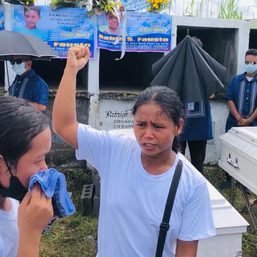
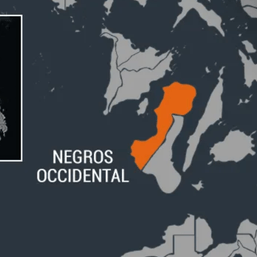

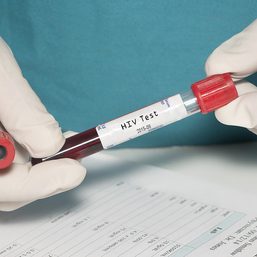
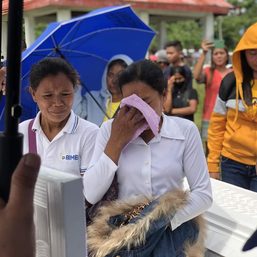


![[The Slingshot] Lito Patay’s 4 hours and 38 minutes of infamy](https://www.rappler.com/tachyon/2024/07/Lito-Patay-4-hours-infamy-July-19-2024.jpg?resize=257%2C257&crop=233px%2C0px%2C720px%2C720px)

![[The Slingshot] A Duterte and Bato cop named Patay](https://www.rappler.com/tachyon/2024/06/tl-lito-patay.jpg?resize=257%2C257&crop=322px%2C0px%2C720px%2C720px)
![[OPINION] Rodrigo Duterte and his ‘unconditional love’ for China](https://www.rappler.com/tachyon/2024/04/rodrigo-duterte-xi-jinping-august-2019.jpeg?resize=257%2C257&crop=91px%2C0px%2C900px%2C900px)


There are no comments yet. Add your comment to start the conversation.